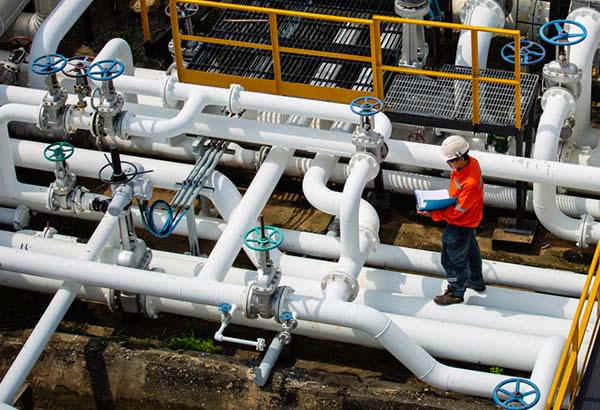Are you aware of the crucial role of API 570 inspections in ensuring industry safety?
Let’s dive deep into how these inspections help prevent potential hazards and protect workers and the environment.
For example, imagine a refinery that undergoes regular API 570 inspections. These inspections identify and address corrosion, leakage, and mechanical failures, preventing costly accidents and downtime.
By adhering to the American Petroleum Institute’s stringent standards, companies can proactively detect and rectify potential risks, safeguarding their operations and the surrounding community.
In this introduction, we will explore the critical components of API 570 inspections, their benefits, and real-life case studies that demonstrate their impact on industry safety.
Key Takeaways
– API 570 inspection training is crucial for equipping inspectors with the knowledge and skills necessary to assess the condition of piping systems.
– The inspection process involves visual inspection, non-destructive examination (NDE), and thickness measurement techniques.
– Implementing API 570 inspection helps identify potential issues, mitigate risks, ensure compliance with industry standards, and enhance the safety and reliability of piping systems.
– Regular inspections of piping systems not only ensure safety for operation and extend equipment lifespan, meet regulatory requirements, and avoid penalties.

Understanding API 570 Inspection Requirements
To understand API 570 inspection requirements, you must familiarize yourself with the specific guidelines and regulations the American Petroleum Institute sets forth.
API 570 inspection training ensures inspectors are well-equipped to carry out their responsibilities effectively. The training covers various aspects, including understanding API 570 inspection guidelines and inspection techniques and identifying potential risks and defects in piping systems.
This training helps inspectors develop the necessary skills and knowledge to assess the condition of the piping systems and recommend appropriate maintenance or repair actions.
Key Components of API 570 Inspection Process
Inspectors play a crucial role in the API 570 inspection process by actively assessing the condition of piping systems and identifying potential risks and defects.
The API 570 inspection process’s key components include using various inspection techniques and adherence to inspection standards.
Inspection techniques such as visual inspection, non-destructive examination (NDE), and thickness measurement are employed to evaluate the integrity of the piping systems.
Visual inspection involves a thorough visual examination of the external and internal surfaces of the pipes to identify any signs of corrosion, leakage, or other defects.
NDE methods, such as ultrasonic and radiographic testing, detect internal flaws that may not be visible to the naked eye.
Additionally, thickness measurement helps assess the remaining wall thickness of the pipes to determine their residual strength.
Adhering to inspection standards, such as the API 570 code, ensures that the inspection process is conducted consistently and accurately, enhancing safety and reliability in the industry.

Benefits of Implementing API 570 Inspection
By implementing API 570 inspection, you can ensure the safety and reliability of your piping systems.
This inspection process offers several benefits, including cost-effectiveness and risk mitigation.
Firstly, API 570 inspection helps identify potential issues before they become costly problems. By detecting and addressing corrosion, leaks, or other defects early on, you can prevent major repairs or even catastrophic failures that can result in expensive downtime.
Secondly, this inspection process plays a crucial role in risk mitigation. It helps ensure compliance with industry standards and regulations, reducing the likelihood of accidents, injuries, or environmental damage.
Ensuring Compliance With API 570 Standards
Ensure compliance with API 570 standards by regularly conducting inspections of your piping systems. This is crucial for ensuring the integrity of your piping systems and minimizing the risk of failures that could lead to hazardous incidents.
Here are five key reasons why compliance with API 570 standards is essential:
– Identifying potential issues: Inspections help identify any signs of degradation or damage in your piping systems, allowing for timely maintenance and repair.
– Ensuring safety: Compliance with API 570 standards ensures that your piping systems are safe for operation, protecting personnel and the environment.
– Extending equipment lifespan: Regular inspections facilitate proper maintenance planning, helping to extend the lifespan of your piping systems and avoid costly repairs or replacements.
– Meeting regulatory requirements: Compliance with API 570 standards ensures that your operations meet the necessary regulatory requirements, avoiding penalties and legal complications.
– Enhancing operational efficiency: Inspections help identify opportunities for optimization and improvement, leading to increased operational efficiency and cost savings.
Case Studies: Real-Life Examples of API 570 Inspection Impact
Take a look at some real-life examples demonstrating the relevance and effectiveness of API 570 inspections in ensuring industry safety.
In one case study, an API 570 inspection identified a corrosion issue in a pipeline that could have led to a catastrophic failure. By detecting the corrosion early on, the inspection allowed for timely repairs and prevented a potential environmental disaster.
Another case study involved the inspection of a pressure vessel that revealed cracks in its welds. These cracks, if left undetected, could have compromised the vessel’s structural integrity, resulting in a significant safety hazard. Thanks to the API 570 inspection, the cracks were promptly repaired, ensuring the vessel’s safe operation.

These real-life examples highlight the importance of API 570 inspections in maintaining industry safety.
Conclusion
API 570 inspection plays a vital role in ensuring industry safety by thoroughly assessing and maintaining the integrity of piping systems.
Implementing API 570 inspection offers numerous benefits, including improved reliability and reduced downtime.
One interesting statistic is that according to a study conducted by the American Petroleum Institute, companies that consistently comply with API 570 standards experience a 50% decrease in incidents and accidents related to piping failures.

